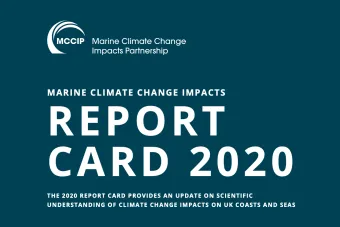
NOC research forms part of a report on marine climate change impacts released today. This report summarises the latest evidence from 26 topics regarding the physical, ecological, and social and economic impacts of climate change on UK coasts and seas.
The key findings
- There is clear evidence that warming seas, reduced oxygen, ocean acidification and sea-level rise are already affecting UK coasts and seas. Increasingly, these changes are having an impact on food webs, with effects seen in seabed-dwelling species, as well as plankton, fish, birds and mammals.
- The upper range for the latest UK sea-level rise projections is higher than previous estimates, implying increased coastal-flood risk. The likelihood of compound effects from tidal flooding and extreme rainfall is increasing, which can greatly exacerbate flood impacts.
- Oxygen concentrations in UK seas are projected to decline more than the global average, especially in the North Sea.
- Fisheries productivity in some UK waters has been negatively impacted by ocean warming and historical overexploitation.
- Impacts of climate change have already been observed at a range of heritage sites. Coastal assets will be subjected to enhanced rates of erosion, inundation and weathering or decay.
NOC scientist, Professor Judith Wolf, said: “As lead author of the section on storms and waves I believe it is important to keep assessing the currently available evidence on climate change effects. I am delighted to support this report card, which provides ‘state-of-the-art’ accessible information.”
Read the whole report.